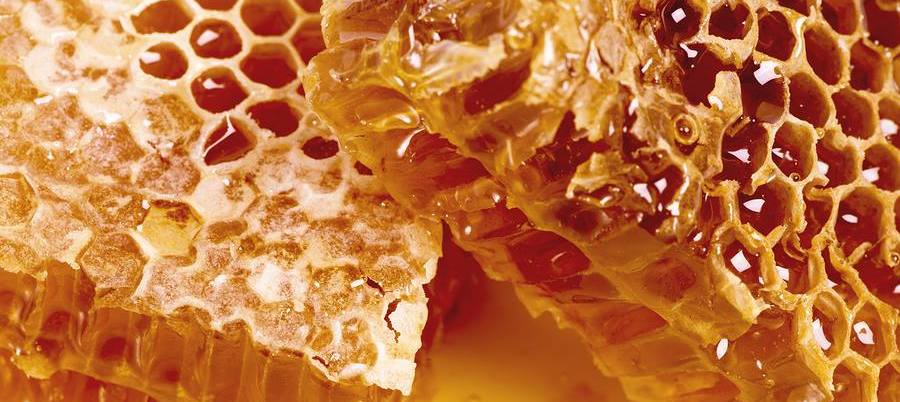Raw Honey label Illegal?
Posted on 2nd April 2024 at 21:48
The word "Raw" to describe honey is a term imported from the USA. Its not a term that has legal status in the UK. Waltham Forest Food Standards took exception to Odysea using the word "raw" on their label and took them to court. Odysea did not take it laying down. What follows is the judgment which has impact for honey labeling in the UK.

Odysea is an importer of Greek deli style foods based in Leyton, London. Some food they own label and others products are from overseas producers. Waltham Forest Foods Standards took exception to the word "Raw" on the labels as part of the product description and issued an Improvement notice to remove the word RAW from their labels
This David v Goliath battle matters, because labelling matters. You as consumer want to know where your food comes from, and small artisan producers, such as those that produce the honey which Odysea sells need to be able to tell us how and why their food is special.
The case was heard on 17 & 18th April 2023 and the judgment from Judge Neville came down on 26th February 2024.
What follows is my distillation of the judgment. You can read the full judgment at https://caselaw.nationalarchives.gov.uk/ukftt/grc/2024/157 Its an interesting read and not very long.
The opposing views are:
Waltham Forest Food Standards (WFFS)
"You are labelling and advertising food with misleading food information; Containers holding honey are labelled with the word ‘raw’ and advertised as ‘raw’ on your website […]
The matters which constitute your failure to comply are:
Making available to the final consumer a range of honey products with ‘food information’ using the term ‘raw’ on product labels and on product descriptions on your website. Thus, suggesting that this food possesses a special characteristic when in fact all similar foods possess such a characteristic.
In order to comply with the provision specified above, you must take the following measures.
Remove the descriptor / word “raw” when giving food information about honey to the final consumer. This will include the removal of the word ‘raw’ from honey on all associated product labels, digital / online media and any other advertising device."
Failure to comply with an improvement notice is a criminal offence. It is true that that the Honey Act 1975 does not have, in its list of definitions, a honey class called raw. This was the essence WFFS case that the word raw was misleading to the public.

Odysea:
Mr Manuelides, Managing Director of Odysea, explained how their head beekeeper in Greece manages their hives and the extraction process in detail. The key factor being the honey is never warmed above 40 degrees Centigrade. This defines the honey as "unpasterised". Heating honey above 60C has a pasteurising effect.
It is Mr Manuelides quoted Piglet from Winnie the Pooh “The things that make me different are the things that make me me”, to contend Odysea honey is special.
He used expert witnesses and panel of freely available information on the subject to make his case.


Their are in two measurable properties that can define whether a honey is pasteurized or unpasteurised.
A. HMF - Hydroxymethylfurfural measured in mg per kg
B. Diatase (DN) - Measured on a scale.
The regulations require a maximum amount of 40mg/kg HMF, and a minimum DN of 8. Odysea sent sample of honey to a German laboratory for testing. The honey test came in at HMF = 3.8 and DN at 12. For reference Odysea also sent six other UK readily available honey to test. The results are interesting.
Mr Manuelides, having put the scientific case went on to put the case for consumer perception. Stating that:
"Raw honey is untreated, and therefore superior in purity, clarity and with a more full-bodied taste. It contains natural traces of pollen from the bees and is rich with live, nutritional enzymes.
When honey is heated through pasteurisation, it loses these health boosting properties as well as the unique flavour palate from the blossom."

In Judge Neville's conclusion in favour of Odysea he rejected WFFS assertion that that "The definition put forward by Waltham Forest, being ‘uncooked’, can be rejected. The average consumer would struggle to explain what ‘cooked honey’ might even look like, and the WFFS guidance and Waltham Forest have failed to explain how the supposedly unacceptable process of cooking can be distinguished from the supposedly acceptable process of pasteurisation. That distinction makes no linguistic or scientific sense, at least on the evidence provided in this appeal."
Cherry picking the words from the judgment the conclusion stated that "I [Judge Neville] reject that Odysea’s use of the word ‘raw’ suggests special characteristics that in fact all similar foods possess, or that it is any other way misleading. Doing the best I can, the word accurately conveys the lack of processing,"

Judge Neville said that "I decline to reach any conclusion on where the lower limit of processing lies before honey may no longer be described as raw, and it may be that clearer guidance or regulation would assist consumers and producers." So it appear the doors is open to lobby out government to amend the current honey regulations to incorporate the word "Raw" and provide a definition.
The full text of the case is available at https://caselaw.nationalarchives.gov.uk/ukftt/grc/2024/157 It is an interesting read especially because it shows up the the poor extent of WFFS understanding of honey preparation and their adherence to out moded regulations not to mention the expense to the tax payers of the London Borough of Waltham Forest.
Tagged as: Case study, Misc
Share this post:








